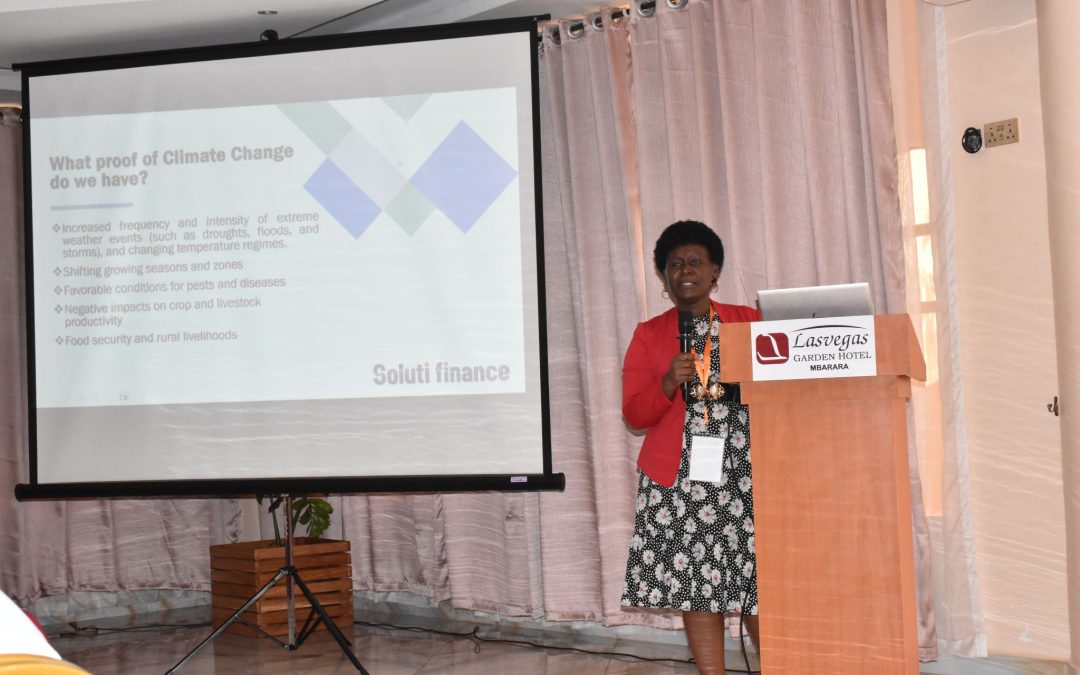During the recently concluded ESG workshop in Mbarara, Uganda, Ms. Jacqueline Mbabazi, Executive Director, AMFIU, delivered a keynote address on ESG requirements in East Africa.
In her session, titled “ESG Requirements in East Africa: Regulatory Perspectives and Practical Needs,” Ms. Mbabazi provided an in-depth analysis of the evolving ESG landscape in Uganda, Kenya, Tanzania, and Rwanda. She underscored the importance of ESG compliance for microfinance institutions (MFIs), emphasizing the need for financial service providers to align with both national regulations and global industry standards.
Ms. Mbabazi addressed key challenges, particularly the impact of climate change on microfinance. She noted that while agriculture is the primary sector for many MFI clients, it contributes to greenhouse gas emissions and remains highly vulnerable to climate fluctuations. She highlighted the necessity for technical assistance, capacity building, and financial innovation to help MFIs support smallholder farmers in adopting low-carbon and climate-smart agricultural practices.
Following her keynote, Ms. Mbabazi participated in a roundtable discussion with industry leaders, where they explored the evolution of ESG practices, the risk of “greenwashing,” and the significance of measuring real impact beyond compliance. She emphasized that ESG adoption is not merely a regulatory obligation but a strategic opportunity for financial institutions to enhance long-term sustainability, attract impact investors, and improve client protection.
Her session laid a strong foundation for the workshop, reinforcing the idea that integrating ESG is essential for the future of microfinance in East Africa. The discussions yielded valuable insights, particularly on the need for collaboration, knowledge sharing, and innovative financing mechanisms to drive ESG adoption.
As the microfinance sector in East Africa continues to evolve, Ms. Mbabazi’s insights provided a clear roadmap for institutions to navigate regulatory requirements and implement meaningful ESG practices that benefit both business sustainability and vulnerable communities.
The workshop, organized by Soluti Finance East Africa Ltd (SOLUTI), took place in Mbarara, Uganda, from October 15-17, 2024. It brought together 59 leaders from 23 microfinance institutions to explore sustainable finance practices and equip financial institutions with the necessary tools to integrate Environmental, Social, and Governance (ESG) principles into their operations.

